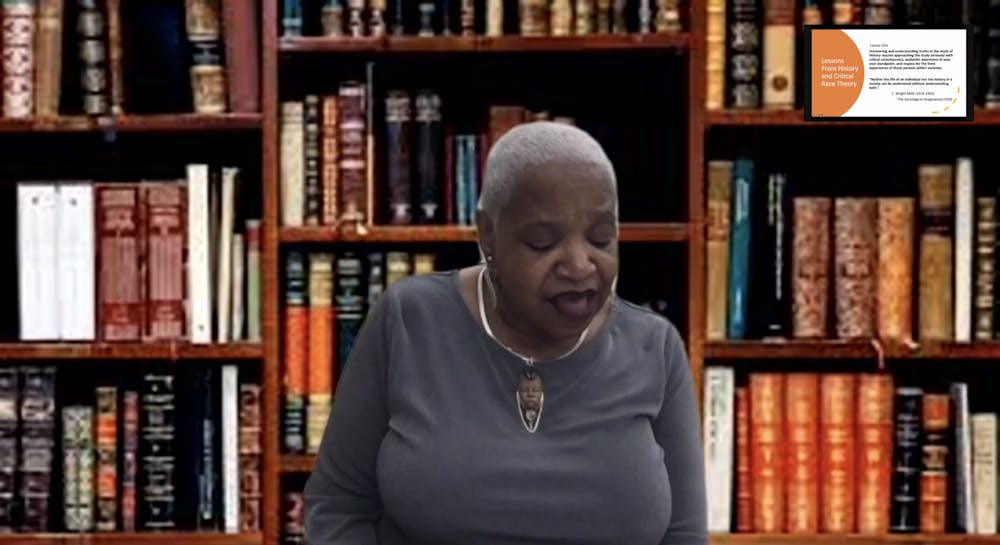Genna Rae McNeil, professor emeritus of history at UNC and a scholar of African American and U.S. constitutional history, spoke about the lessons she has learned in studying history and critical race theory during the 29th Annual Sonja Haynes Stone Memorial Lecture on Tuesday.
The event is a signature program of the Sonja Haynes Stone Center for Black Culture and History, Vice Provost for Academic and Community Engagement Joseph Jordan said.
Chancellor Kevin Guskiewicz shared opening remarks via a prerecorded welcome.
“The Stone Center has made a name for itself both regionally and nationally as a place for cultural and historical exploration, research, outreach and service,” Guskiewicz said.
The search for the annual speaker begins months in advance, Sheriff Drammeh, senior program manager for the Stone Center, said.
The speaker is selected based on their embodiment of Sonja Haynes Stone as “someone who was supremely interested in the lives of students, particularly Black students, and was interested also in making sure that the lives, histories and cultures of people of African descent were also understood,” Joseph said.
During the event, Jailyn Neville, a junior at UNC and a Sean Douglas Leadership fellow, discussed more of Stone’s life and legacy.
“Dr. Stone inspired a new consciousness among the student body," Neville said. "She exemplified why Black culture and history are indivisible from the American experience."
Joseph introduced McNeil and her contributions to the UNC community and scholarship on African lives and histories.



